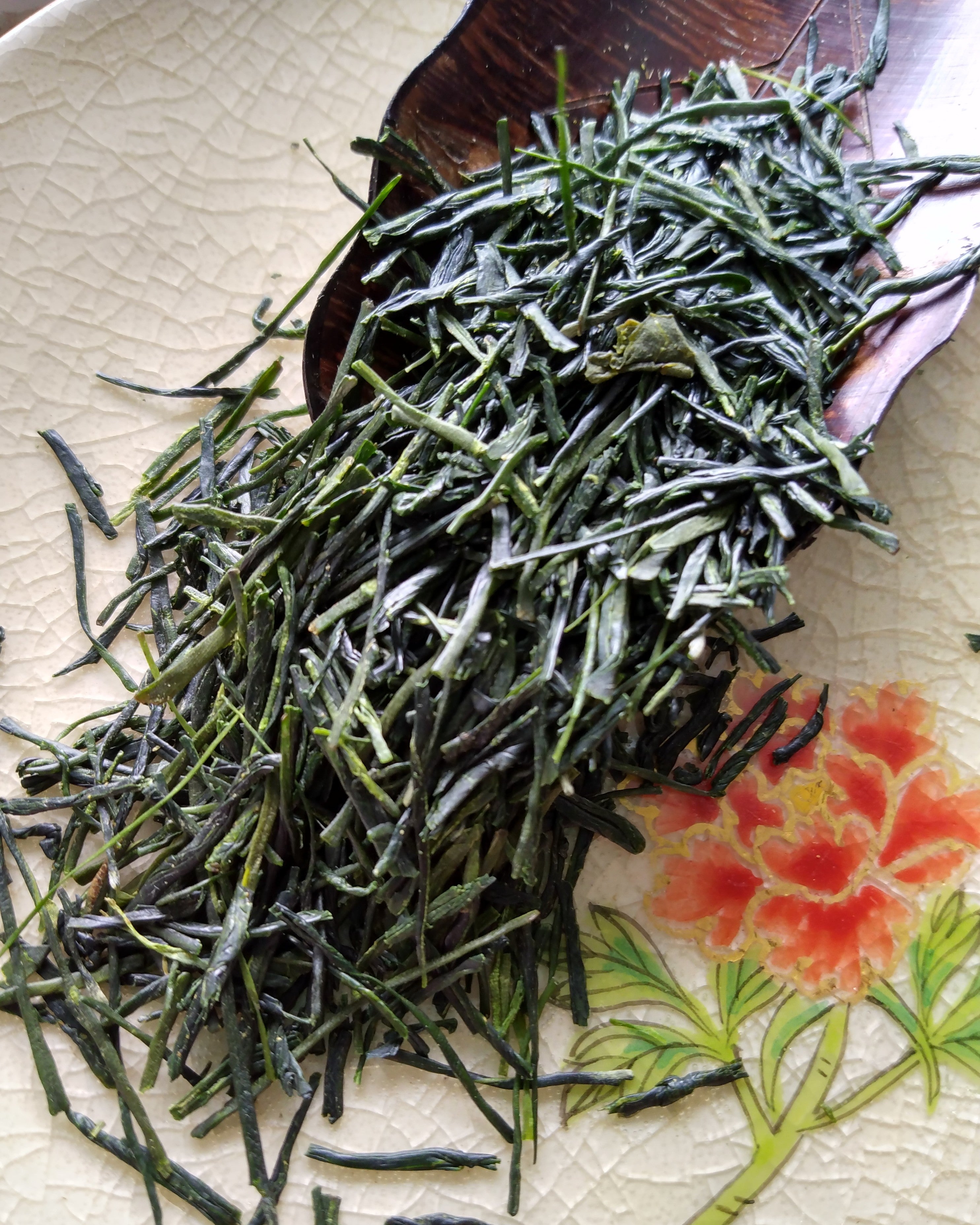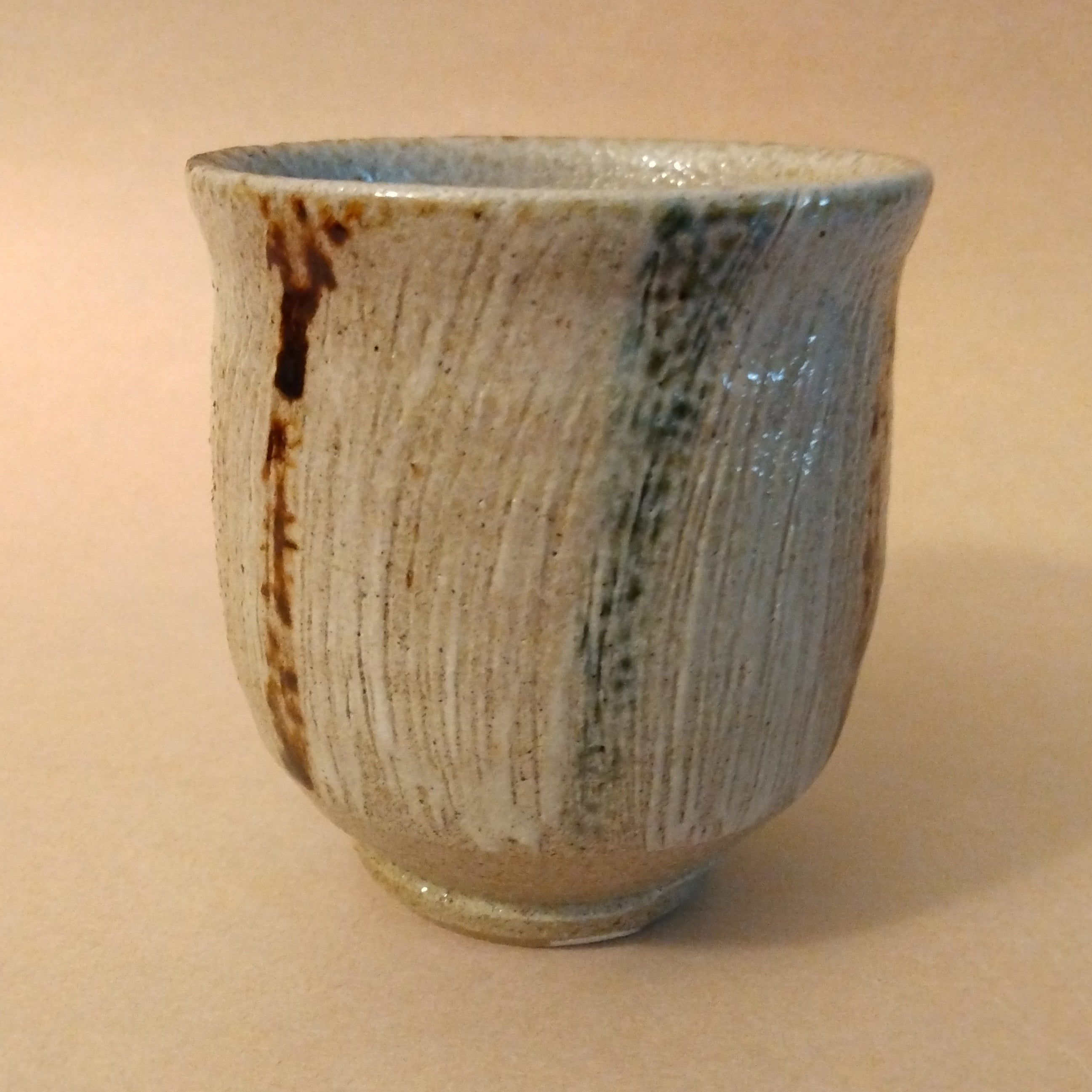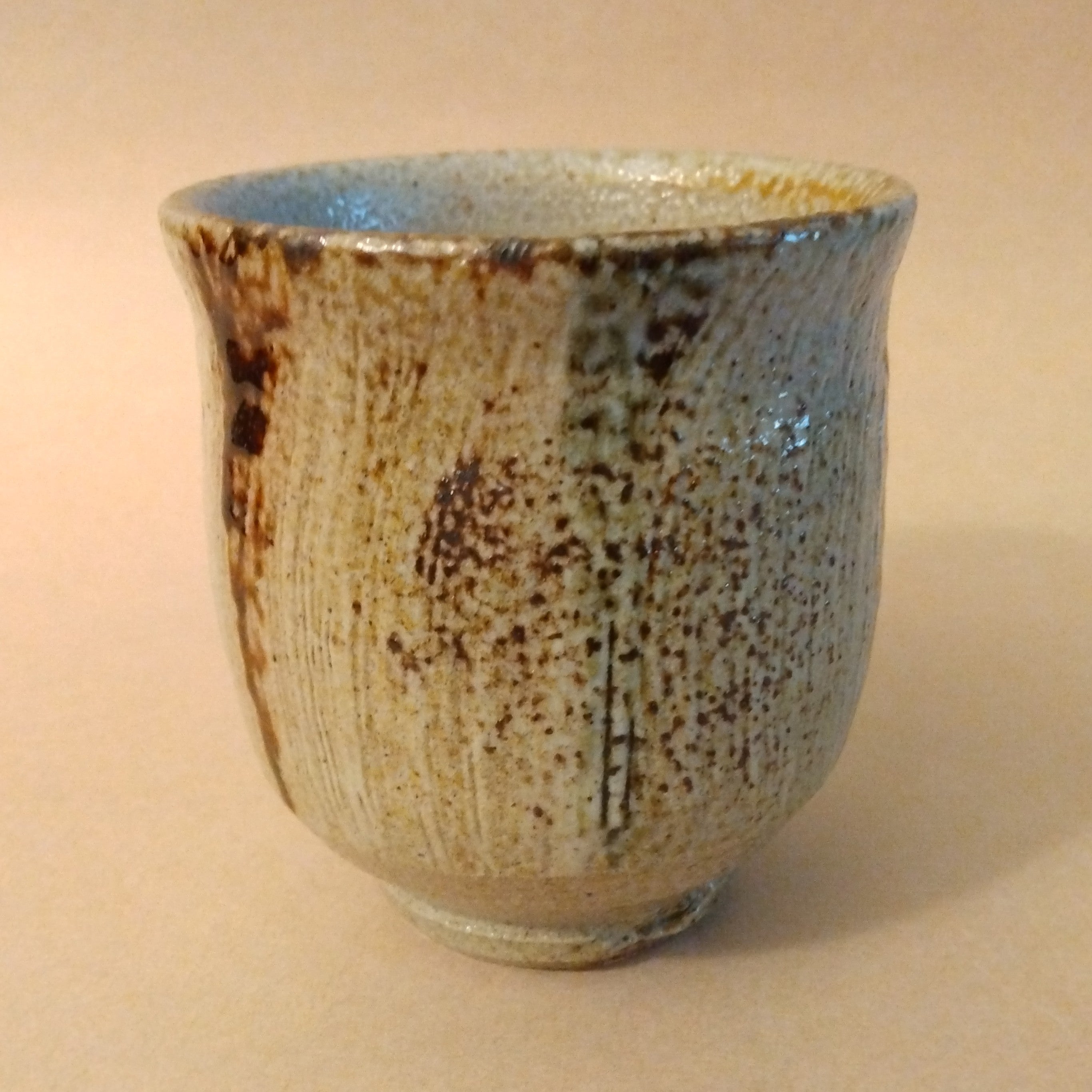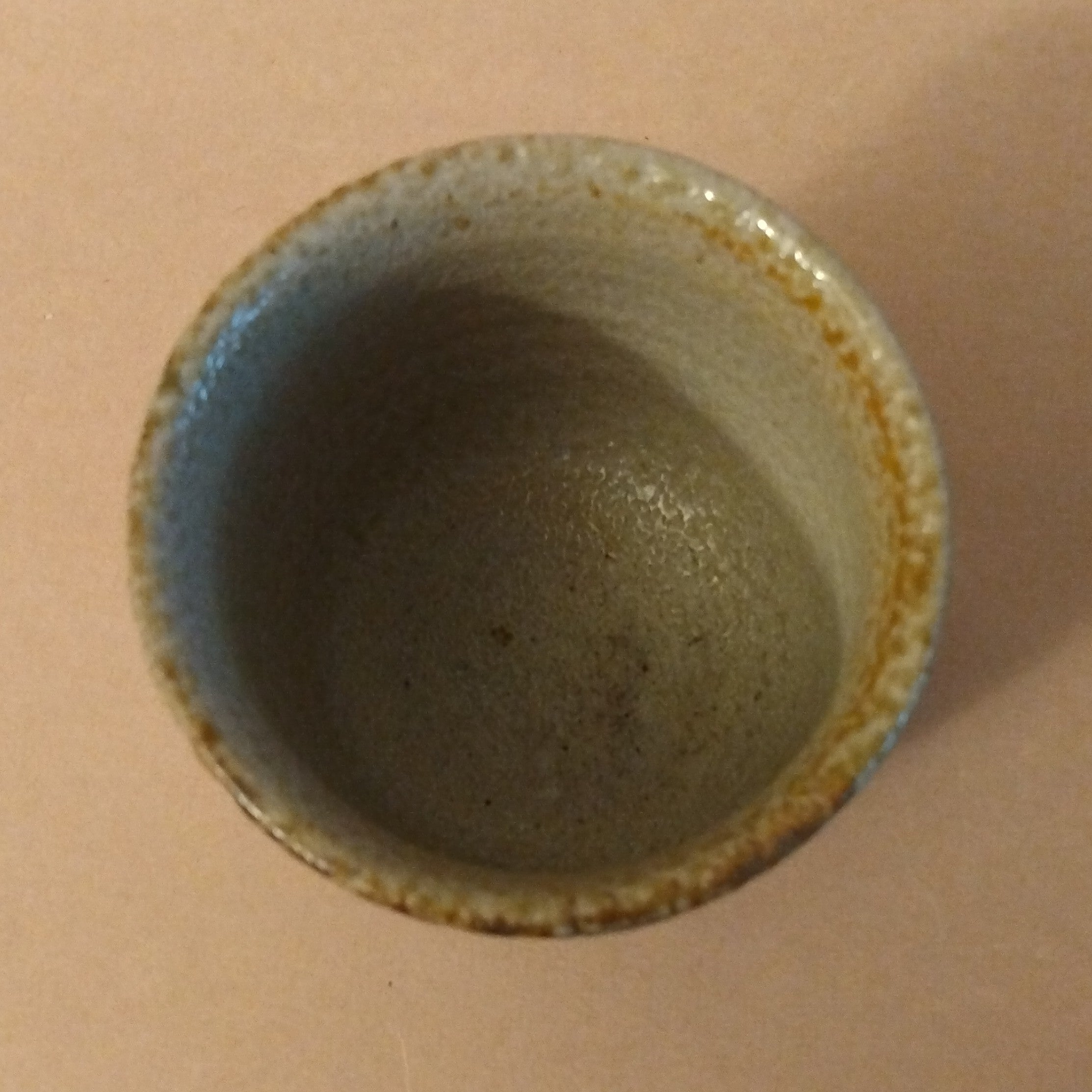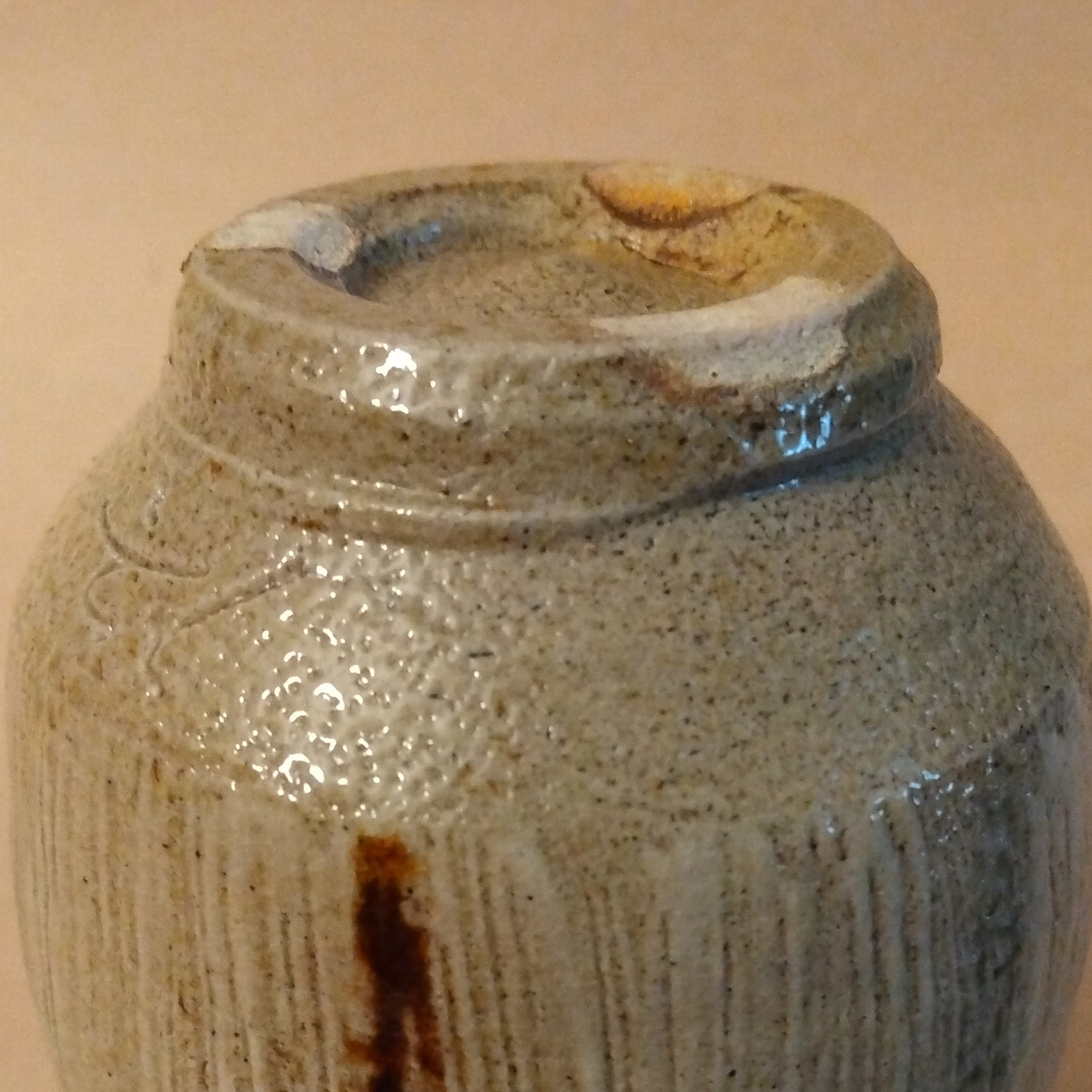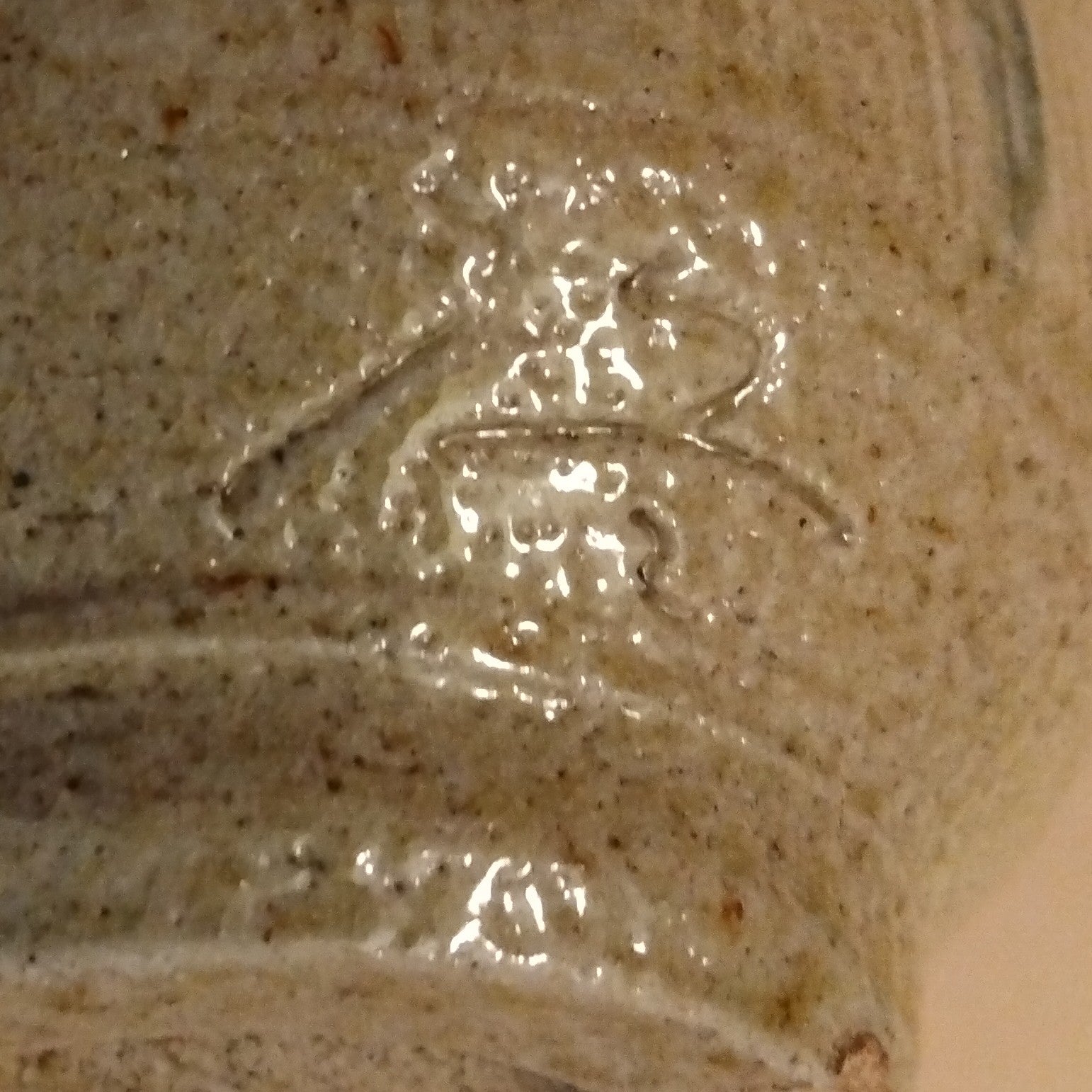Description
Yunomi, Tea Cup, by Oyama Takashi of Mashiko. Salt-glazed with vertically brushed slip, with intermittent vertical brushed stripes in cobalt and iron. White interior. Take-kodai (bamboo node shaped foot). H. 3.375"(8.5cm) x Dia. 3"(7.5cm). Weight 215 grams. Volume 210ml (6.75oz).
Oyama Takashi was born in Tokyo in 1955 and went to Mashiko to apprentice with Hamada Shoji (1894-1978) after graduating from high school. He was among the last of Hamada Shoji's apprentices before he established his own independent kiln in 1977. He has since exhibited widely in Japan, as well as in Europe and Australia. He specializes in salt-glazing and continues with a strong foundation in folk crafts techniques leaned from his master, Hamada.
The town of Mashiko is located about 70 miles northwest of Tokyo, in Tochigi Prefecture. Although there is evidence of pottery manufacture in the region of Mashiko as far back as the 8th century; production in the modern age began in 1853, making it a relatively young pottery center by Japanese standards. However, whereas many traditional pottery towns disappeared when Japanese lifestyle changes made many functional clay items obsolete, Mashiko has survived and thrived as one of the largest pottery communities in the world. Much of this can be credited to life and work of Shoji Hamada, who decided to settle in this traditional clay village. Although he was a contemporary artist, he showed great respect for the work of traditional artisans, for the natural materials available from the region, and for the "Other Power" of tradition. He was a leading figure in the Japanese Folk Craft Movement, along with Soetsu Yanagi and others; such as potters Bernard Leach and Kanjiro Kawai, textile artist Keisuke Serizawa, and woodblock printer Shiko Munakata. Hamada was designated as a National Living Treasure for his preservation of Mingei (Folk Craftâ) pottery and promoted an openness which led many to follow his path to Mashiko. In the early 2000's, there are some 400 kilns operating in and around Mashiko making a wide variety of wares; from traditional styles and patterns to modern artistic works.
